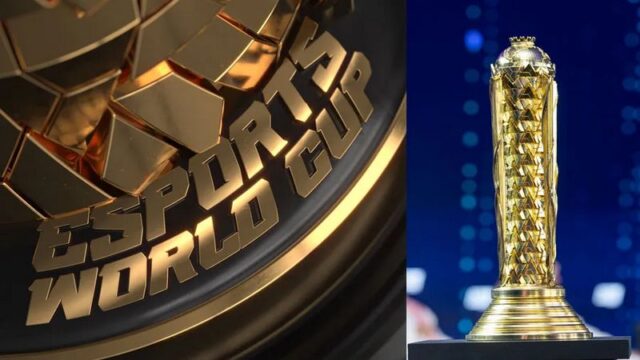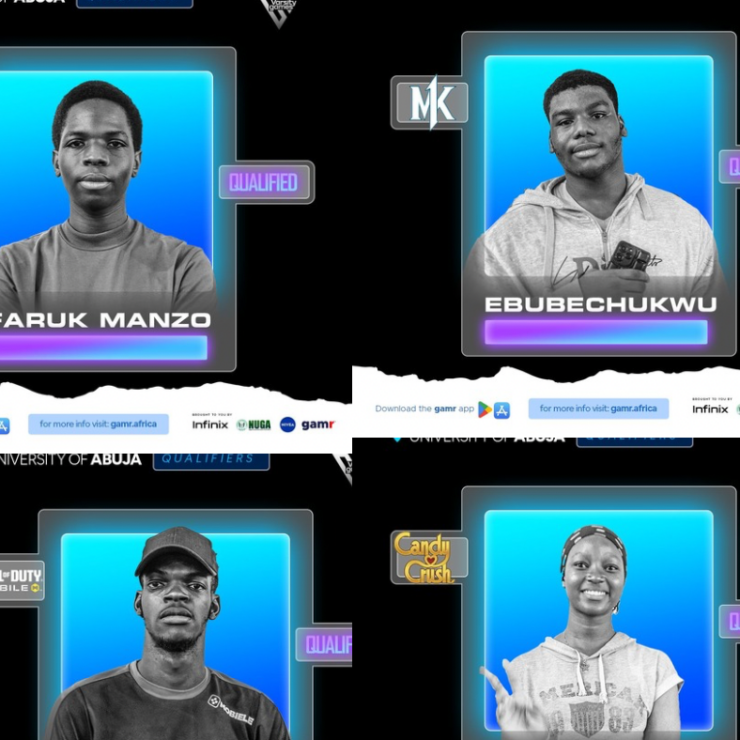In recent weeks, the world’s attention has been captivated by the inaugural Esports World Cup, which kicked off on July 2nd in Riyadh, Saudi Arabia. This groundbreaking event has transcended the traditional boundaries of sports, demonstrating that gaming is no longer just a pastime but a global phenomenon.
The intense competition and electric atmosphere generated by the Esports World Cup have surpassed even the most thrilling football matches. It’s clear that gaming has evolved from a solitary pursuit to a spectator sport that unites people from all walks of life.
From the bustling metropolis of Seoul to the vibrant streets of New York, and even across the vast continent of Africa, fans have been glued to their screens, cheering on their favourite teams and players. The Esports World Cup has become more than just a competition; it’s a definition of the future of virtual sports.
With a staggering $60 million prize pool, the tournament has attracted top-tier skilled players from over 400 clubs worldwide. This unprecedented scale has positioned the Esports World Cup as a landmark event in the history of esports, redefining the industry’s potential and impact.
It’s clear that we are witnessing a new era of competition, where virtual battles are taking over the global scale. The Esports World Cup has ignited a passion for gaming that extends far beyond traditional sports, and its influence will be felt for years to come.
The Mercedes-Benz Arena: The Heartbeat of the Esports World Cup
The Esports World Cup has been a whirlwind of excitement, and a significant part of its allure lies in the breathtaking venue: the Mercedes-Benz Arena. This state-of-the-art facility has transformed into the epicenter of global gaming, providing an unparalleled experience for players and spectators alike.

Beyond the intense competition on stage, the atmosphere within the arena is electric. Fans from all corners of the world have converged on Berlin, transforming the venue into a sea of team jerseys and passionate chants. The energy is palpable, reminiscent of the fervor found at legendary football stadiums like Old Trafford. The fan zone outside the arena has added to the festival-like atmosphere, creating a space for gamers to connect, share their passion, and immerse themselves in the world of esports.
The Mercedes-Benz Arena has undoubtedly elevated the Esports World Cup to new heights, showcasing the immense potential of esports as a global spectacle.
The Teams and Their Journey
This year’s tournament features a mix of teams from across the globe. Leading the charge are perennial powerhouses like Team Liquid from North America, T1 from South Korea, and Fnatic from Europe. These teams have dominated the esports scene for years, showcasing unparalleled skill in games like League of Legends, Dota 2, and Counter-Strike: Global Offensive. However, 2024 has also seen the rise of dark horses, particularly from regions previously underrepresented in esports. Teams from Southeast Asia and Latin America have made significant strides, with their players demonstrating exceptional prowess and strategy, challenging the established order.
Another notable highlight of this year’s EWC is the remarkable performance of African teams. Historically, the continent has faced numerous challenges in developing its esports scene, from limited infrastructure to insufficient funding. Yet, 2024 marks a turning point, with teams from South Africa, Nigeria, and Kenya making a significant impact. Team Bravado from South Africa, for instance, has been a revelation in the Counter-Strike: Global Offensive tournament. Their victory over a European giant in the group stages sent shockwaves through the esports world, heralding a new era for African esports.

Noteworthy Performances
League of Legends: T1’s Unstoppable Run
South Korean powerhouse T1 has cemented its status as a global esports juggernaut by claiming the League of Legends championship. With a dominant 3-1 victory over TOP Esports, showcased exceptional teamwork, strategic brilliance, and individual skill. This victory marks another milestone in T1’s already illustrious history.

Free Fire: Team Falcons Triumph
In the fast-paced world of Free Fire, Team Falcons emerged victorious, securing the championship title after a thrilling final. With precise aim, quick reflexes, and strategic gameplay, Team Falcons outmanoeuvred their opponents to claim the coveted trophy and a substantial portion of the prize pool.

Group Stages: A Battle for Supremacy
The group stages for other titles, such as Mobile Legends: Bang Bang, are still underway. Fans can expect intense competition as teams fight for a chance to advance to the knockout stages. The group stages have already seen upsets, dominant performances, and thrilling matches that have kept viewers on the edge of their seats.
South Africa Makes its Mark at the Esports World Cup
While the world was captivated by the FIFA World Cup, a parallel digital spectacle was unfolding across Africa. The continent is experiencing a surge in esports, with countries like South Africa making significant strides on the global stage.
South Africa’s participation in the FIFAe Club World Cup, a cornerstone of the Esports World Cup, is a testament to the nation’s growing esports prowess. Organizations like Goliath Gaming are spearheading this charge, showcasing South African talent on the world stage.
Beyond South Africa, the broader African esports ecosystem is thriving. Events like the Gamr X, Africa Games Week in Lagos, Nigeria, are incubating local talent and fostering community growth and players opportunity into global stages like this. These platforms, coupled with increasing partnerships between African esports organizations and international tech giants, are creating a fertile ground for the continent’s esports stars to flourish.
As the global esports industry continues to expand, Africa is poised to become a major player. With its burgeoning youth population and growing digital infrastructure, the continent has the potential to produce world-class esports athletes and teams.

In a world where digital and physical boundaries blur, the Esports World Cup stands as a beacon of innovation and excitement. As Africa’s presence grows and new stars emerge, the future of esports looks brighter than ever. The 2024 tournament is a testament to the power of gaming to transcend borders and unite people, proving that in the world of esports, the only limit is the imagination.
However, as the tournament heads into its final stages, anticipation builds for the grand finale. Will the established titans hold their ground, or will the underdogs continue their Cinderella story? The world watches with bated breath, united in the thrill of competitive gaming.
Who do you think will be the next Esports World Cup champion? Share your predictions in the comments below!
Written by Olamide Michael





